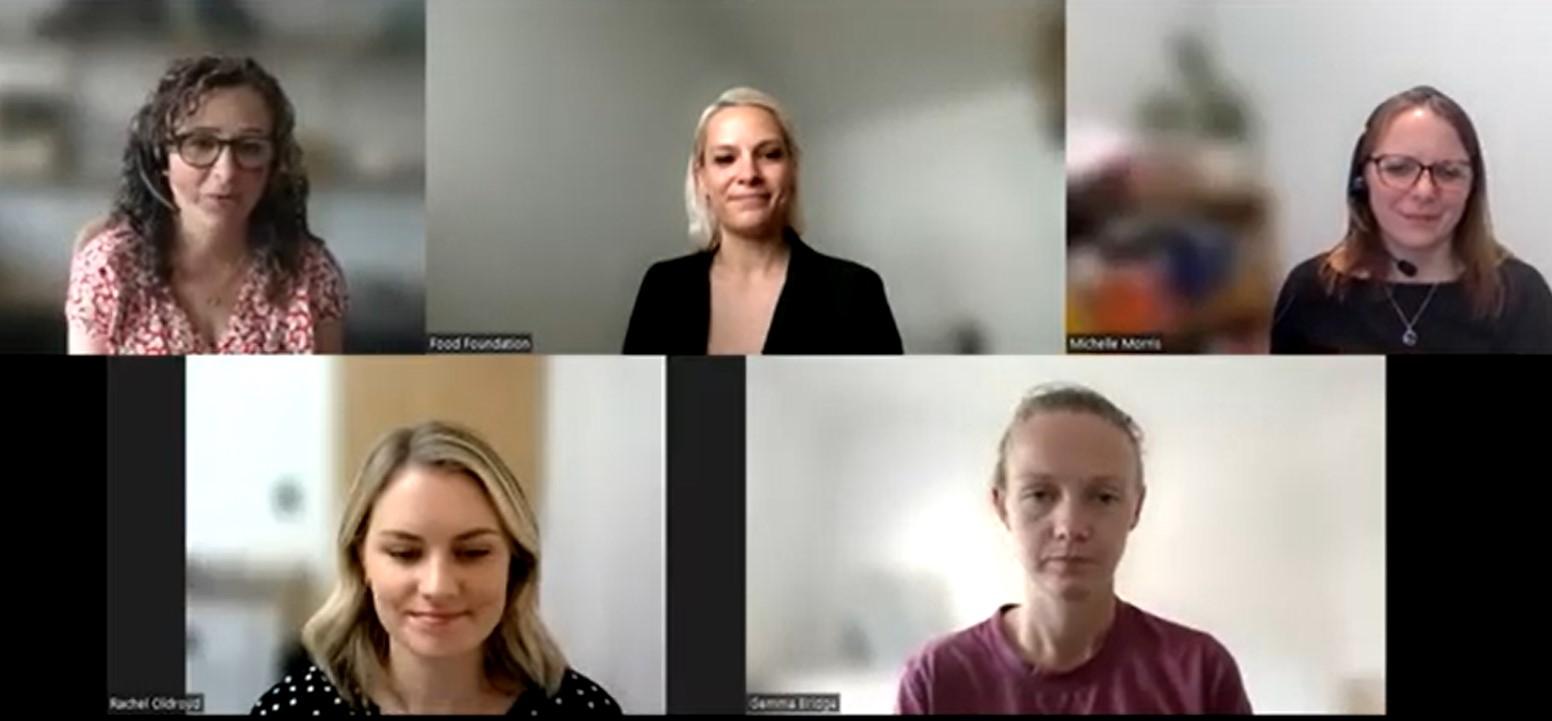Webinar 2: Scaling out community food organisations - the results

12:00 - 13:00
The University of Leeds in collaboration with Food Foundation has been leading on a project with the aim of helping to understand how to scale up (i.e. increase the size) or out (i.e. replicate in more places) place-based, community-led food initiatives to increase their positive impact to communities, environment, and local economies across the UK.
In the second of a two-part webinar series we explore the takeaways and policy implications following completion of the project which produced 10 best practice case studies. It follows on from the first webinar held in April where we discussed the methods employed to scope priority areas and capture variations in community-led food initiatives.
Agenda for the webinar
- Project overview
- Case Study Outputs
- Takeaways and Policy Implications
- Questions and discussion
Speakers:
- Dr Gemma Bridge, Research Fellow, University of Leeds
- Dr Rachel Oldroyd, Lecturer, University of Leeds
- Dr Effie Papargyropoulou, Associate Professor in Sustainable Food Networks, University of Leeds
- Professor Michelle Morris, School of Food Science and Nutrition & Leeds Institute for Data Analytics (LIDA), University of Leeds
Learn more about the project
Scaling up place-based food initiatives | School of Earth and Environment | University of Leeds
Background
Food insecurity (i.e. not having access to enough nutritious, affordable food, or not knowing where your next meal will come from) affects one in five households in the UK. Food insecurity has increased following the Covid-19 pandemic and has been exacerbated by the cost of living crisis.
Moreover, global food production accounts for at least 30% of Greenhouse Gas (GHG) emissions contributing to climate change.
Place-based, community-led food initiatives such as food banks, social supermarkets, community cafes, and food growing schemes can increase food security and sustainability of the food system.
They can achieve this through the range of activities they offer including surplus food redistribution, food skills training (e.g. food growing & cooking classes), community engagement and support (e.g. shared meals, signposting to other services). They also support those affected by food insecurity, offer a local and more sustainable food supply chain, and deliver wider social, economic and environmental benefits.
Aim of the project
The aims of this project are threefold:
- To capture and explore the range of benefits that place-based, community-led food initiatives offer,
- To identify ways in which some place-based, community-led food initiatives can become more sustainable, moving away from emergency food provision and moving towards community empowerment and resilience, and
- Where appropriate, to gain a better understanding of how to scale up (i.e. increase the size) or out (i.e. replicate in more places) place-based, community-led food initiatives to increase their positive impact to communities, environment, and local economies across the UK, whilst also promoting ongoing efforts to achieve sustainability.
The Priority Places for Food Index (PPFI) developed by the Consumer Data Research Centre in collaboration which the consumer group Which? will be used to scope priority areas most at risk of food insecurity, and subsequently identify the diverse range of food initiatives which provide additional support to them.
Who should attend the webinar?
This webinar is for individuals and organisations interested in understanding how areas differ in their need for community food support and how to identify these differences to better scale up and out relevant community food provision.
If you missed the first webinar you can watch on YouTube below:


